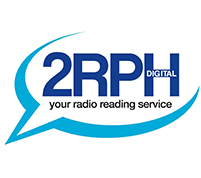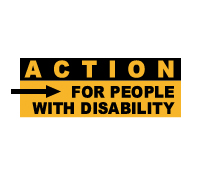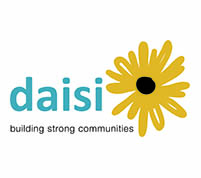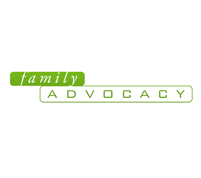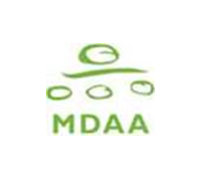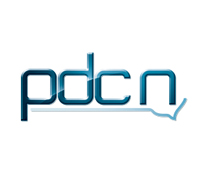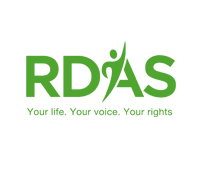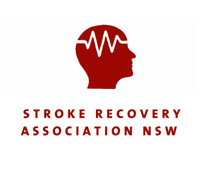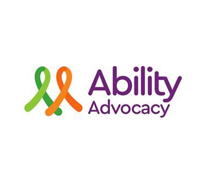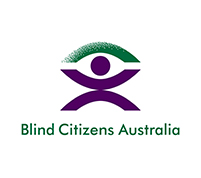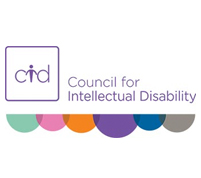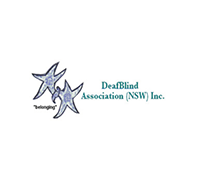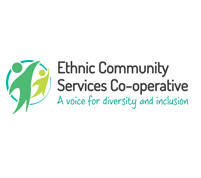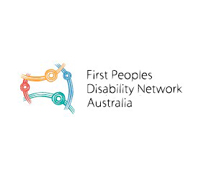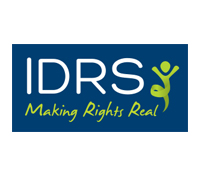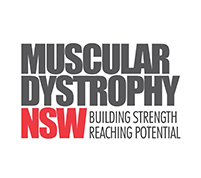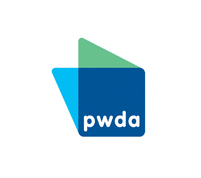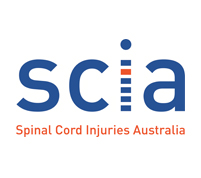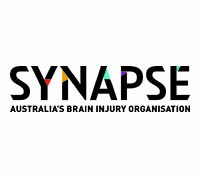About Us
We all want to belong, to be included and to have the same opportunities to fulfil our potential. People with disability are no different, but it can be a whole lot harder.
Independent disability advocacy exists to ensure that people with disability have a voice and can overcome those challenges; that we have input into and control over decisions that affect our lives. So a number of independent disability advocacy, information and peak representational groups across the state have joined forces to form the NSW Disability Advocacy Alliance.
FAQ's
What is disability advocacy all about, and why is it so important?
It’s about ensuring that people with disability have a voice; that we have input into and control over decisions that affect our lives.
We all want to belong, to be included and to have the same opportunities to fulfil our own unique potential. People with disabilities are no different. It’s just a whole lot harder. How do you find work when you can’t get your wheelchair onto public transport, much less into half the buildings? Who do you turn to for help when your child isn’t being given the support they need in school? What if you or someone you love is being treated poorly by the facility you’re supposed to trust? Where do you turn?
This is what independent disability advocacy is all about: people in your corner who are experts and can help you navigate the system. People who will shine a light and help make the system better. People who know your rights, understand your challenges and will work with you to sort it out so you can have real control over your own life – whatever’s going on.
Different organisations focus on different areas. Some organisations specifically support families, others support people with intellectual disabilities, or particular physical challenges. Some focus on making the system better as a whole, while others primarily help individuals. But whether we’re making things better one person at a time or by winning changes that will help thousands, our work is essential.
Who is the Disability Advocacy Alliance?
We are a group of disability advocacy, information and peak representative organisations that empower people with a disability to have a voice. Our member organisations are: Physical Disability Council of NSW; Family Advocacy; IDEAS; People with Disability Australia; NSW Council for Intellectual Disability; Intellectual Disability Rights Service; Disability Advocacy NSW; Citizen Advocacy Western Sydney Inc; Multicultural Disability Advocacy Association; Spinal Cord Injuries Australia; Ethnic Community Services Cooperative; Disability and Aged Information Service; Ability Advocacy; Regional Disability Advocacy Service; Action for People with Disability Inc; Stroke Recovery Association NSW; Synapse; and First Peoples Disability Network
What, if any, of these services will the National Disability Insurance Scheme cover?
Under something called the ‘Information Linkages and Capacity building’ (ILC) arm of the NDIS, there will be some information services and focus on capacity building. However, the government is very explicit that the NDIS will not fund individual advocacy or systemic advocacy:
“Some activities that advocacy organisations currently do, including providing information, or education and capacity building, or support for decision making, fit into the Activity Areas described in the ILC Policy. Advocacy organisations will be welcome to apply for ILC funding to deliver activities that fit into these areas – just like any other organisation. Because of our focus on user-led organisations, we will particularly prioritise applications from self-advocacy or peer advocacy organisations. We will not fund individual or systemic advocacy in ILC.” (ILC commissioning Framework, p. 21).
The ILC has no sustained funding model for independent national information services; only one-year term competitive grants for non-advocacy based organisations.
Do advocacy, information and support organisations primarily help people only with physical disabilities, or do you also support people with issues like autism?
It varies. Family Advocacy, for example, campaigns on behalf of people in NSW with all kinds of disability – including intellectual/cognitive, developmental, neurodivergent (autism, sensory processing disorders, other), physical, and sensory (hearing and sight impairment). Other types of disability amongst families that Family Advocacy represents include Down Syndrome, developmental delay, autism, cerebral palsy.
Whereas the Physical Disability Council of NSW focuses on making the system better primarily for people with physical disabilities.
Another service, IDEAS, assists people with any disability no matter how acquired at any age or life stage – alongside their families, carers and supporters.
What about family and/or those in a caring role: what kind of help might they need?
Some of the classic battles families of people with disability face include enrolment in the regular class at school, professional and useful treatment from medical professionals and not having their son or daughter lumped into services with people they may have nothing in common with than a diagnosis.
Furthermore, some parents or other family of people with disability have a disability themselves and might need additional support. For example, a parent might be autistic and have children with autism or other neurodivergence. The NSW Judicial Commission has noted that 33% of primary carers in NSW and 29.7% of other carers have disabilities themselves.
Often in our society, it is viewed as ‘easier’ to communicate with the family member, friend or partner of a person with disability, than to communicate with the person directly. That being said, groups like Family Advocacy recognise the important role families play in the life of a person with disability, and so we’re there to support families of people with disability to advocate on their behalf.
Families can make the person with disability’s voice heard when and if they are not able to do so for themselves – including babies and children – and later when a person either does not have the capacity or desire to advocate for themselves. When families do everything they can to enable a person with disability to have a good life, that person is less vulnerable and more able to participate fully in their community.
What are some of the barriers people with disability commonly face in NSW?
Societal expectations and attitudes around people with disability when it comes to education, work, housing and participation in community aren’t great.
Start with schooling: according to the NSW Auditor General, one in four students still experience exclusion and/or rejection from mainstream education (2016).
Children and Young People with Disability Australia reports that 67% of students with disability do not receive adequate support, 52% have been bullied (compared to 27% of the general student population), 34% have been excluded from school events (such as camps, discos and formals), 19% have been restrained at school (physically, mechanically and/or chemically), 19% have experienced seclusion at school. 12% only attend part time and 8% have been refused enrolment.
There is no social expectation that people with disability will seek employment or that they will thrive in employment. The continuance of low-paid ‘Disability Enterprises’ (sheltered workshops), employment congregation and discrimination in the workplace present serious barriers to people with disability seeking employment and maintaining equal access to all employment opportunities.
Finally, abuse in services, schools and living arrangements is shockingly common. The NSW Ombudsman has recently revealed that since January 2014, there have been 400 reviewable deaths of people with disability in NSW. Between December 2015 and March 2017 there were 1408 reportable incidents (including physical assault, sexual assault, neglect and fraud). Of reported incidents, 663 were made against an employee of a disability service, 522 were made between two people with disability accessing the same service and over 22 were unexplained serious injury.
What are some of the most common kinds of physical disability in our state?
In NSW, common physical disabilities can include an acquired brain injury, arthritis, multiple sclerosis, spinal cord injury and stroke.
How many people have a disability in NSW?
Government reports and census data indicates that 18.2% of the NSW population has a disability – almost one in five people (1.37 million of the 7.413 million NSW residents). This is reflective of the national statistic of 18.5% of Australians reporting a disability.
NSW is placed in the middle of the disability prevalence rates for all states and territories, with Tasmania and South Australia recording higher rates (at 25.2% and 22% respectively) and Northern Territory, Western Australia and the Australian Capital Territory recording lower rates (11.3%, 14% and 15.8% respectively).
What do disability advocates in our state want?
It’s simple: we want the NSW government to stand by us. We want the resources to be able to keep serving people with a disability in NSW, so that all of us can participate fully in our communities. That means we need to be fully funded. When that happens, everyone benefits.
What about families of people with disabilities – how will cuts to advocacy services impact them?
Without advocacy, families won’t have the support and knowledge of generations of families who have advocated for their loved one with disability. They won’t have support when their child, who has autism, is rejected from eight different schools. They won’t have peer support and a vision of what life can be like for their loved one with disability.
What kinds of things has disability advocacy achieved?
Working together with individuals and their families we’ve made tremendous progress. The best changes are those that today we take for granted: like the fact that children with disability are entitled to attend regular schools.
More recently, advocates realised many people needing to see their doctor weren’t able to get onto an examination bed. So we worked in conjunction with RACGP (Royal Australasian College of General Practitioners) to make it mandatory now for a NSW-registered GP surgery to have at least one height-adjustable bed.
Or when we supported parents with intellectual disability living in regional areas, whom had to travel for hours to get to the Children’s Court often missing the court sessions. Advocates negotiated with the court system to trial a circuit court to be held in locations closer to the person with a disability – and it’s been a huge success.
Some victories are locally-based, like in Newcastle where the ferry wharf was only wheelchair-accessible on one side of the river! We stood by the person impacted, arranged legal support and even took the issue to the Human Rights Commission. Now there’s a ferry wharf everyone can use.
Thanks to disability advocacy we finally have lift access for people in wheelchairs, those with stability issues (or prams!) to be able to enjoy the view from one of our most famous national landmarks… the Sydney Harbour Bridge.
Examples of what this means in people’s own words – praise for the organisation IDEAS:
“Over much of the 25 years that we have been fostering children with disabilities we have found IDEAS to be a reliable source of information. The staff have been able to track down information on a wide variety of matters. Given the time demands involved in looking after children with disability…..IDEAS has been able to provide information which would have taken hours of time that was much better spent on providing real hands on care for the children we nurturee.”
“They are always happy to help and if they don’t know the answer they will find out for us.”
“The up to date news makes living and coping with my disability a little bit easier.”
”IDEAS became the only resource I could use when my grandson was diagnosed with a rare lifelong condition in 1989.The information they gave me was invaluable at that time and it allowed me to find ways forward to help him.”
Won’t all this be covered under the NDIS?
The NDIS is really important and a giant leap forward. But organisations under the NDIS umbrella are service providers, not advocates.
An NDIS employment service can’t, for instance, independently go to bat for someone who is being discriminated against at work. The NDIS can’t help people facing difficult situations – whether relating to education, housing, violence and abuse, transport or child protection – to stand up for their own rights or find appropriate help for someone they love.
The NDIS won’t be able to help make the buses more accessible, get lift access finally on the Sydney Harbour Bridge or ensure children with disabilities are properly included in mainstream schools. NDIS representatives won’t have a seat at the table to help government plan and make better decisions, or address things we need to change.
What is disability advocacy all about, and why is it so important?
It’s about ensuring that people with disability have a voice; that we have input into and control over decisions that affect our lives.
We all want to belong, to be included and to have the same opportunities to fulfil our own unique potential. People with disabilities are no different. It’s just a whole lot harder. How do you find work when you can’t get your wheelchair onto public transport, much less into half the buildings? Who do you turn to for help when your child isn’t being given the support they need in school? What if you or someone you love is being treated poorly by the facility you’re supposed to trust? Where do you turn?
This is what independent disability advocacy is all about: people in your corner who are experts and can help you navigate the system. People who will shine a light and help make the system better. People who know your rights, understand your challenges and will work with you to sort it out so you can have real control over your own life – whatever’s going on.
Different organisations focus on different areas. Some organisations specifically support families, others support people with intellectual disabilities, or particular physical challenges. Some focus on making the system better as a whole, while others primarily help individuals. But whether we’re making things better one person at a time or by winning changes that will help thousands, our work is essential.
Who is the Disability Advocacy Alliance?
We are a group of disability advocacy, information and peak representative organisations that empower people with a disability to have a voice. Our member organisations are: Physical Disability Council of NSW; Family Advocacy; IDEAS; People with Disability Australia; NSW Council for Intellectual Disability; Intellectual Disability Rights Service; Disability Advocacy NSW; Citizen Advocacy Western Sydney Inc; Multicultural Disability Advocacy Association; Spinal Cord Injuries Australia; Ethnic Community Services Cooperative; Disability and Aged Information Service; Ability Advocacy; Regional Disability Advocacy Service; Action for People with Disability Inc; Stroke Recovery Association NSW; Synapse; and First Peoples Disability Network
What, if any, of these services will the National Disability Insurance Scheme cover?
Under something called the ‘Information Linkages and Capacity building’ (ILC) arm of the NDIS, there will be some information services and focus on capacity building. However, the government is very explicit that the NDIS will not fund individual advocacy or systemic advocacy:
“Some activities that advocacy organisations currently do, including providing information, or education and capacity building, or support for decision making, fit into the Activity Areas described in the ILC Policy. Advocacy organisations will be welcome to apply for ILC funding to deliver activities that fit into these areas – just like any other organisation. Because of our focus on user-led organisations, we will particularly prioritise applications from self-advocacy or peer advocacy organisations. We will not fund individual or systemic advocacy in ILC.” (ILC commissioning Framework, p. 21).
The ILC has no sustained funding model for independent national information services; only one-year term competitive grants for non-advocacy based organisations.
Do advocacy, information and support organisations primarily help people only with physical disabilities, or do you also support people with issues like autism?
It varies. Family Advocacy, for example, campaigns on behalf of people in NSW with all kinds of disability – including intellectual/cognitive, developmental, neurodivergent (autism, sensory processing disorders, other), physical, and sensory (hearing and sight impairment). Other types of disability amongst families that Family Advocacy represents include Down Syndrome, developmental delay, autism, cerebral palsy.
Whereas the Physical Disability Council of NSW focuses on making the system better primarily for people with physical disabilities.
Another service, IDEAS, assists people with any disability no matter how acquired at any age or life stage – alongside their families, carers and supporters.
What about family and/or those in a caring role: what kind of help might they need?
Some of the classic battles families of people with disability face include enrolment in the regular class at school, professional and useful treatment from medical professionals and not having their son or daughter lumped into services with people they may have nothing in common with than a diagnosis.
Furthermore, some parents or other family of people with disability have a disability themselves and might need additional support. For example, a parent might be autistic and have children with autism or other neurodivergence. The NSW Judicial Commission has noted that 33% of primary carers in NSW and 29.7% of other carers have disabilities themselves.
Often in our society, it is viewed as ‘easier’ to communicate with the family member, friend or partner of a person with disability, than to communicate with the person directly. That being said, groups like Family Advocacy recognise the important role families play in the life of a person with disability, and so we’re there to support families of people with disability to advocate on their behalf.
Families can make the person with disability’s voice heard when and if they are not able to do so for themselves – including babies and children – and later when a person either does not have the capacity or desire to advocate for themselves. When families do everything they can to enable a person with disability to have a good life, that person is less vulnerable and more able to participate fully in their community.
What are some of the barriers people with disability commonly face in NSW?
Societal expectations and attitudes around people with disability when it comes to education, work, housing and participation in community aren’t great.
Start with schooling: according to the NSW Auditor General, one in four students still experience exclusion and/or rejection from mainstream education (2016).
Children and Young People with Disability Australia reports that 67% of students with disability do not receive adequate support, 52% have been bullied (compared to 27% of the general student population), 34% have been excluded from school events (such as camps, discos and formals), 19% have been restrained at school (physically, mechanically and/or chemically), 19% have experienced seclusion at school. 12% only attend part time and 8% have been refused enrolment.
There is no social expectation that people with disability will seek employment or that they will thrive in employment. The continuance of low-paid ‘Disability Enterprises’ (sheltered workshops), employment congregation and discrimination in the workplace present serious barriers to people with disability seeking employment and maintaining equal access to all employment opportunities.
Finally, abuse in services, schools and living arrangements is shockingly common. The NSW Ombudsman has recently revealed that since January 2014, there have been 400 reviewable deaths of people with disability in NSW. Between December 2015 and March 2017 there were 1408 reportable incidents (including physical assault, sexual assault, neglect and fraud). Of reported incidents, 663 were made against an employee of a disability service, 522 were made between two people with disability accessing the same service and over 22 were unexplained serious injury.
What are some of the most common kinds of physical disability in our state?
In NSW, common physical disabilities can include an acquired brain injury, arthritis, multiple sclerosis, spinal cord injury and stroke.
How many people have a disability in NSW?
Government reports and census data indicates that 18.2% of the NSW population has a disability – almost one in five people (1.37 million of the 7.413 million NSW residents). This is reflective of the national statistic of 18.5% of Australians reporting a disability.
NSW is placed in the middle of the disability prevalence rates for all states and territories, with Tasmania and South Australia recording higher rates (at 25.2% and 22% respectively) and Northern Territory, Western Australia and the Australian Capital Territory recording lower rates (11.3%, 14% and 15.8% respectively).
What do disability advocates in our state want?
It’s simple: we want the NSW government to stand by us. We want the resources to be able to keep serving people with a disability in NSW, so that all of us can participate fully in our communities. That means we need to be fully funded. When that happens, everyone benefits.
What about families of people with disabilities – how will cuts to advocacy services impact them?
Without advocacy, families won’t have the support and knowledge of generations of families who have advocated for their loved one with disability. They won’t have support when their child, who has autism, is rejected from eight different schools. They won’t have peer support and a vision of what life can be like for their loved one with disability.
What kinds of things has disability advocacy achieved?
Working together with individuals and their families we’ve made tremendous progress. The best changes are those that today we take for granted: like the fact that children with disability are entitled to attend regular schools.
More recently, advocates realised many people needing to see their doctor weren’t able to get onto an examination bed. So we worked in conjunction with RACGP (Royal Australasian College of General Practitioners) to make it mandatory now for a NSW-registered GP surgery to have at least one height-adjustable bed.
Or when we supported parents with intellectual disability living in regional areas, whom had to travel for hours to get to the Children’s Court often missing the court sessions. Advocates negotiated with the court system to trial a circuit court to be held in locations closer to the person with a disability – and it’s been a huge success.
Some victories are locally-based, like in Newcastle where the ferry wharf was only wheelchair-accessible on one side of the river! We stood by the person impacted, arranged legal support and even took the issue to the Human Rights Commission. Now there’s a ferry wharf everyone can use.
Thanks to disability advocacy we finally have lift access for people in wheelchairs, those with stability issues (or prams!) to be able to enjoy the view from one of our most famous national landmarks… the Sydney Harbour Bridge.
Examples of what this means in people’s own words – praise for the organisation IDEAS:
“Over much of the 25 years that we have been fostering children with disabilities we have found IDEAS to be a reliable source of information. The staff have been able to track down information on a wide variety of matters. Given the time demands involved in looking after children with disability…..IDEAS has been able to provide information which would have taken hours of time that was much better spent on providing real hands on care for the children we nurturee.”
“They are always happy to help and if they don’t know the answer they will find out for us.”
“The up to date news makes living and coping with my disability a little bit easier.”
”IDEAS became the only resource I could use when my grandson was diagnosed with a rare lifelong condition in 1989.The information they gave me was invaluable at that time and it allowed me to find ways forward to help him.”
Won’t all this be covered under the NDIS?
The NDIS is really important and a giant leap forward. But organisations under the NDIS umbrella are service providers, not advocates.
An NDIS employment service can’t, for instance, independently go to bat for someone who is being discriminated against at work. The NDIS can’t help people facing difficult situations – whether relating to education, housing, violence and abuse, transport or child protection – to stand up for their own rights or find appropriate help for someone they love.
The NDIS won’t be able to help make the buses more accessible, get lift access finally on the Sydney Harbour Bridge or ensure children with disabilities are properly included in mainstream schools. NDIS representatives won’t have a seat at the table to help government plan and make better decisions, or address things we need to change.
